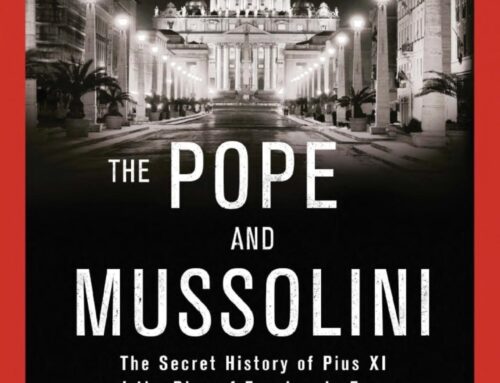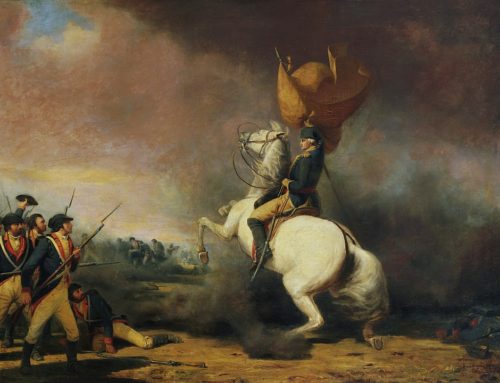“This whipped jackal, Mussolini, who to save his own skin made all Italy a vassal State of Hitler’s Empire, comes frisking up at the side of the German tiger with yelping not only of appetite…but even of triumph.” Winston Churchill speech before Parliament following Italy’s abortive invasion of Greece.
In Ian Kershaw’s book, Fateful Choices, the author provided a scathing attack on Mussolini, whose megalomaniac vision of a reconstituted Italian Empire led to nightmare repercussions for his people. By 1940, Mussolini seemed totally removed from reality. That is, he failed to recognize the impotence of his country. Italy was economically and industrially unprepared to fight a prolonged war. Her economy was in such shambles that the per capita income of Italians was twenty-five percent of Great Britons.
Italy was an industrial lightweight. In 1940, Italy only produced a million tons of coal and 3.6 million tons of steel. On the other hand, Germany produced 186 million tons of coal and 22.4 million tons of steel. Great Britain produced 230 million tons of coal and 13.6 million tons of steel.
How effective was the “Pact of Steel?”
The so-called “Pact of Steel” between Germany and Italy was a fiction; that is, Italy was in reality a paper weight. Moreover, there never existed the extensive coordination and cooperation between Italy and Germany that existed between the United States and Great Briton. In fact, neither Hitler nor Mussolini bothered to inform the other before taking a major initiative.
“Hitler always faces me with a fait accompli. This time I am going to pay him back in his own coin. He will find out from the papers that I have occupied Greece. In this way the equilibrium will be re-established.”
Mussolini, 12 October 1940
Why Should have Mussolini Remained Neutral?
In hindsight, Mussolini should have followed the example of Franco, the Spanish dictator and remained neutral. The state of preparedness of the Italian armed forces was pathetic. The quantity and quality of her military arsenal was so bad, that the meager Greek forces routed the Italians when the later tried to invade Greece. On top of that, Mussolini against the judgment of the army leaders, leading fascists, the king, and the population forged the fate of his nation with the unpopular Germans. Franco understood fully that a war-torn Spain was incapable of waging a meaningful military effort despite his desire for Gibraltar. After a day’s negotiations with Franco, an exasperated Hitler expressed a preference to see a dentist rather than another face-to-face meeting with Franco.
Ironically, the Italian entry into World War II might have been an impediment to the Nazis. That is, both in North Africa and in Greece, Hitler had to alter his manpower, armaments deployment, and timetable to save his faltering fascist ally.
Did the Italians like the Germans?
The popularity of an alignment with Germany was short-lived. That is, the disastrous Italian campaigns in Greece and North Africa undermined quickly any Italian confidence in Mussolini’s judgment. By the middle of 1942, the Italian King, key Italian military personnel, and fascist’s politicos were plotting to overthrow Mussolini. That is, the inertia that had allowed Mussolini to rule for 17 years began to unravel contemporaneously with Italian economic and military setbacks. Even the Foreign Minister, Ciano, who was Mussolini’s son-in-law, joined the plot to emasculate El Duce. Stated differently, while the conquest of Ethiopia did arouse some patriotic outbursts of enthusiasm for Mussolini at all levels of the Italian society, Mussolini’s popularity plummeted when Italian economic and military misfortunes materialized after the Italian setbacks in Greece and North Africa. After 1943 when Italy tried to change sides and join the allies, the Germans treated the Italians shabbily, including the needless destruction of many historical sites.
Why did Mussolini plunge Italy into World War II?
Mussolini like most Europeans felt that a German victory over Great Britain was inevitable. Thus, like a jackal, Italy hoped to pick up some scraps left over from the voracious Nazis. While Mussolini understood that Italy was unprepared for war in 1941, the speedy victories of the Nazis in Belgium, the Netherlands, and France aroused his jealousy. That is, Mussolini perfectly understood that Hitler was unprepared to share the spoils of victory with a neutral Italy.
Moreover, Mussolini was incensed over Hitler’s invasion of Romania; a country that he perceived was part of the Italian sphere of influence. In response Mussolini on October 28, 1940 decidedly unilaterally to invade Greece, setting off political instability throughout the Balkans. A shocked and incensed Hitler was forced to divert significant troops from his upcoming Barbarossa invasion of Russia in order to secure Fascist control over Yugoslavia, Greece, Albania, and Romania. When the tide of fortune turned against Nazi Germany, Hitler bitterly remonstrated against the five-week delay and deployment of German troops that emanated from the failed Italian expedition.
Some sixty-five years after Mussolini’s launching of the Greek campaign, historians must still scratch their head that the “straw that broke Mussolini’s back” was over Romania. That is, starting in 1938, Mussolini had to swallow many bitter pills. Specifically, Hitler failed to inform in advance Mussolini about the Anschluss, the Soviet-Nazi non- aggression pact, the launching of World War II, and the invasion of the Netherlands, Belgium, and France. While Mussolini fretted about being left out in the cold over Hitler’s failure to consult him, Hitler’s sending troops into Romania was the “cruelest blow.”
Why was Mussolini so unhappy about Hitler’s quick victories in Western Europe?
Hitler’s successful attacks on Norway, Denmark, Holland, Belgium, and France were implemented without prior consultation with the Italians. Furthermore, the speedy Nazi triumphs allowed Germany to unilaterally decide the division of the spoils.
Mussolini seethed at the success of his fascist “partner.” His feelings were expressed in this statement “It is humiliating to remain with our hands folded while others write history. It matters little who wins. To make a people great it is necessary to send them to battle even if you have to kick them in the pants.”
Since Hitler was anxious to forge a workable relationship with Vichy France, he was reluctant to give Italy much spoils at the expense of France. Instead, Hitler preferred the Italians grab territory from Great Britain in the Middle East, and secure Crete and Malta in the Mediterranean. In essence, like a lion, Hitler offered mere scraps to his jackal Italian ally.
What factors led to the Allied Victory over the Axis Powers?
In order to win World War II, the allies needed to forge a workable alliance among the three major powers—The United States, Great Britain, and the Soviet Union. Fortunately, for the sake of civilization, Germany, Italy, and Japan failed to coordinate their military muscle, leading to missed opportunities both in North Africa and the Soviet Union. Success in either one of these theatres could have dramatically shifted the outcome of World War II.
The alliance of the United States, Great Britain, and the Soviet Union was a shot gun wedding. However, the marriage lasted long enough to defeat the Germans and the Japanese.
Specifically, Churchill and Roosevelt overcame national prejudices, and established common military objectives, the Germans, Italians, and Japanese operated independently. In stark contrast to the belabored cooperation between Great Britain and the United States, Germany, Italy, and Japan launched major armed initiatives such as the invasion of Russia or the surprise attack on Pearl Harbor without consulting each other.
The relationship between United States and Great Britain on the one hand, and the Soviet Union on the other was more tenuous, and filled with suspicion and recriminations. That is, the allies never forgave the Soviet Union for entering into the non-aggression pact with Germany in 1939, paving the way for Hitler’s invasion of Poland. On the other hand, Stalin bitterly resented the failure of a second front until 1944, feeling that the Anglo-Americans were perfectly happy to see Germany and Russia bleed to death. To allay the paranoid Stalin, Churchill in 1942 visited the Russian dictator in person to explain the allies’ decision to invade North Africa rather than try to reoccupy France. Moreover, America provided the Soviets with significant lend lease aid to shore up the depleted Russian arsenal. Roosevelt made personal overtures at Tehran and Yalta to create a personal rapport with Stalin. That is, Roosevelt felt that he could replicate his success with the “big city political bosses in the United States” with Stalin. Churchill had a more realistic assessment of the paranoid Russian dictator, and understood that Stalin wished to secure meaningful control over much of Eastern Europe. Despite deep seated differences, the Soviet Union did coordinate military initiatives to divert German troops from shoring up their armed personnel in France. The failure of Germany to take strong counter measures during the first few days of Operation Overlord—the D-Day invasion of Normandy—sealed Germany’s defeat.



